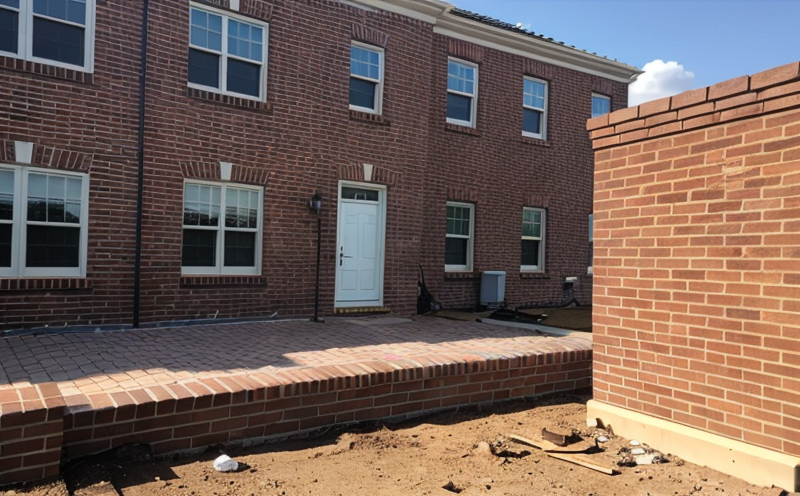EN 772 Flexural Load Resistance Testing
The EN 772-1 standard specifies the methods to determine the flexural load resistance of masonry units. This test is essential for assessing the structural integrity and durability of masonry structures, which are commonly used in building and infrastructure projects.
Masonry units such as bricks, blocks, and related products are subjected to bending forces during construction and in use conditions. Flexural strength testing helps ensure that these materials can withstand the stresses they will encounter throughout their service life without failure. The test is particularly important for ensuring compliance with building codes and standards, especially those that pertain to safety and structural integrity.
The procedure outlined in EN 772-1 involves placing a standard specimen on two supports and applying a load until it breaks. The test setup typically consists of a loading machine capable of applying controlled loads, a rigid support system, and a specimen that closely represents the actual masonry units to be tested.
The testing process is carefully regulated by international standards such as EN 772-1. This ensures consistent results across different laboratories and geographies, which is crucial for quality assurance and regulatory compliance in the construction industry.
The test results provide valuable insights into the flexural strength of masonry units, helping manufacturers optimize their products' performance and durability. For building and infrastructure projects, these insights are critical to ensuring that structures can withstand environmental stresses and loads over time without compromising safety or integrity.
| Standard | Description |
|---|---|
| EN 772-1:2015 | Determination of the flexural load resistance of masonry units. |
| ASTM C636-18 | Standard test method for flexural strength of masonry units by point loading. |
| BS EN 772:2019 | British Standard for the determination of mechanical properties of building bricks and related products. |
Applied Standards
- EN 772-1:2015 specifies the methods to determine the flexural load resistance of masonry units.
- ASTM C636-18 provides a standard test method for flexural strength of masonry units by point loading.
- BS EN 772:2019 sets out British Standards for determining mechanical properties of building bricks and related products.
Eurolab Advantages
At Eurolab, our expertise in EN 772 flexural load resistance testing ensures that your masonry units meet the highest standards of quality and safety. Our state-of-the-art facilities and experienced technicians provide accurate and reliable results.
We offer comprehensive support throughout the testing process, from specimen preparation to result interpretation. Our team can help you understand how the test results impact your product development or compliance efforts. Additionally, we ensure that all tests are conducted in accordance with the latest international standards, providing confidence in the reliability of your masonry units.
With Eurolab, you can trust that your testing needs will be met efficiently and effectively. Our commitment to quality and accuracy is unparalleled, ensuring that your products meet or exceed industry expectations.
Why Choose This Test
- Ensures compliance with international standards such as EN 772-1:2015 and ASTM C636-18.
- Provides critical insights into the flexural strength of masonry units, which is essential for structural integrity.
- Helps manufacturers optimize their products' performance and durability.
- Supports building codes and standards that pertain to safety and structural integrity.
- Ensures consistent results across different laboratories and geographies.
- Promotes trust in the reliability of masonry units used in construction projects.
- Aids in meeting regulatory requirements for quality assurance.





